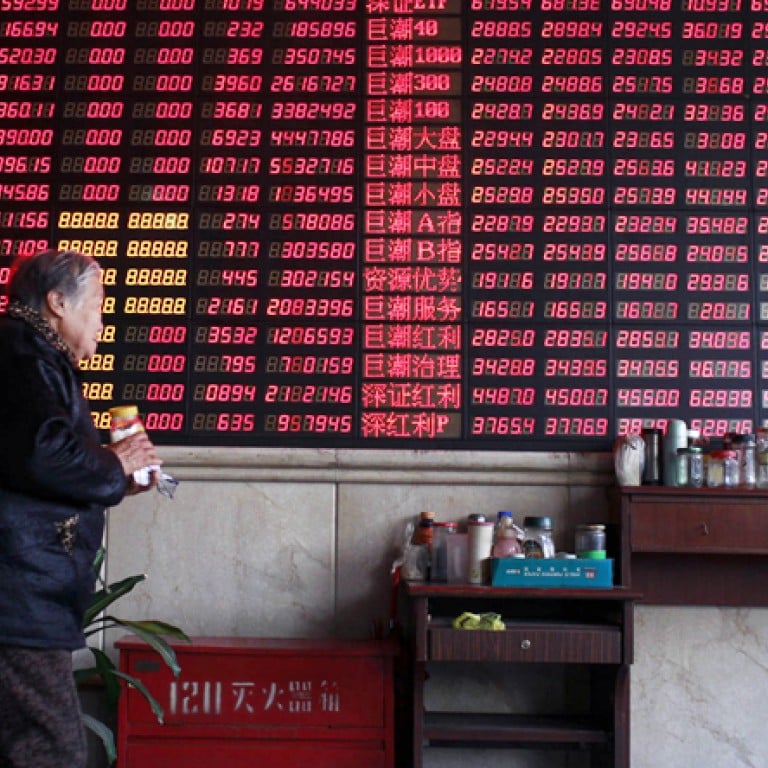
China securities regulator chairman Xiao Gang vows reform
Regulator says it should act as the little finger, staying away from intervention but ensuring transparency and adherence to the rules
The mainland's securities regulator must position itself like a little finger, reducing unnecessary intervention in the capital market while strengthening its role in promoting a transparent and fair market environment through implementing strict rules, China Securities Regulatory Commission chairman Xiao Gang said yesterday.
Xiao told magazine's annual forum in Beijing that the central government also aimed to push ahead with the globalisation of the capital market, although it was not planning to launch a long-delayed international board in the near term.
Top Communist Party leaders decided at a key meeting this month to deepen reforms in the financial, land, fiscal and capital markets, with steps outlined including an overhaul of the initial public offering system.
Xiao said the CSRC would toughen scrutiny of the "accuracy, comprehensiveness and timeliness" of listing applicants' information disclosure, but would no longer assess valuation or the sustainability of profits.
"Such a reform doesn't mean the CSRC's responsibility will be relaxed," Xiao said. "It's just the way it operates will be changed."
In the capital market, investors were like the thumb, playing the most prominent role, Xiao said, followed by brokerages, the press and listed companies, while the CSRC was like the little finger on the hand.
"The pinkie finger is the smallest among the five," he said. "However, when people fold their palms to make a worship bow, the little finger gets the closest to the Buddha and its power. In the next stage, the CSRC should play such a role in capital market reform, which, while small, possesses the legal power."
Xiao also pledged to further open the capital market to global players. The total investments made under the qualified foreign institutional investor (QFII) scheme, rolled out about 10 years ago, and the yuan-denominated renminbi qualified foreign institutional investor (RQFII) scheme that was introduced in 2011 added up to no more than 2 per cent of the mainland's total capitalisation, he said.
The QFII and RQFII programmes were aimed at giving overseas investors, including those in Hong Kong, opportunities to buy securities traded on the mainland markets through a quota-based system.
"We need to further open the market," Xiao said, indicating the quotas given to investors would be increased.
However, he added: "Conditions for launching an international board aren't yet ripe".
Last month, the CSRC denied rumours that Beijing was planning to allow qualified foreign companies to offer shares in the newly established free-trade zone in Shanghai.
"We aren't planning to roll out the board for now," Xiao said. "It's not being studied."
The mainland authorities also aim to build a multi-tier capital market, including developing boards to trade stocks, bonds, derivatives and those that target smaller investors, in a bid to cut reliance on financing from banks and reduce the country's debt ratio, which is too high.
In 64 years of Communist Party rule on the mainland, banks had issued a total of 70 trillion yuan (HK$89 trillion) worth of loans, Xiao said, with 40 trillion yuan of that extended in the past four years.
The shadow banking system had extended a further 20 trillion yuan, fuelling financial risks, he said.

